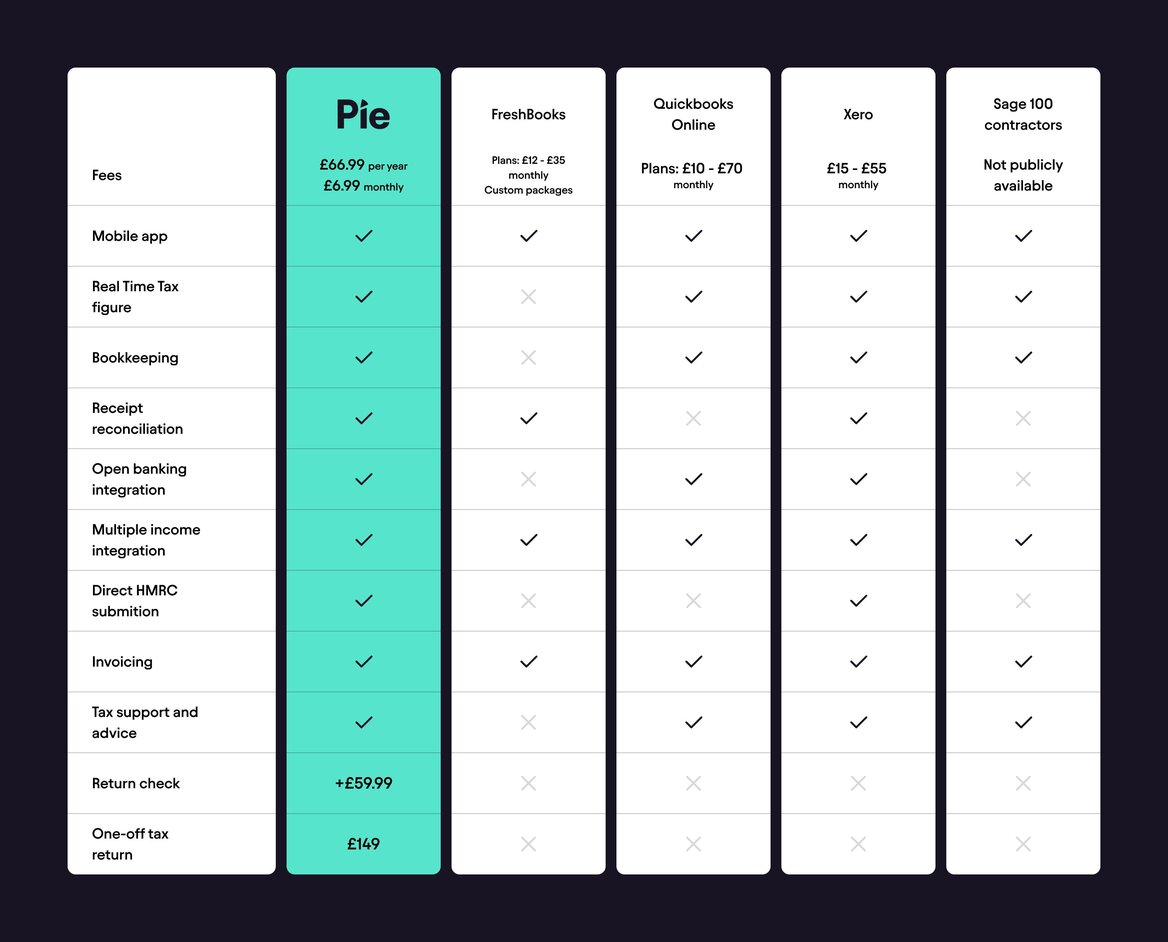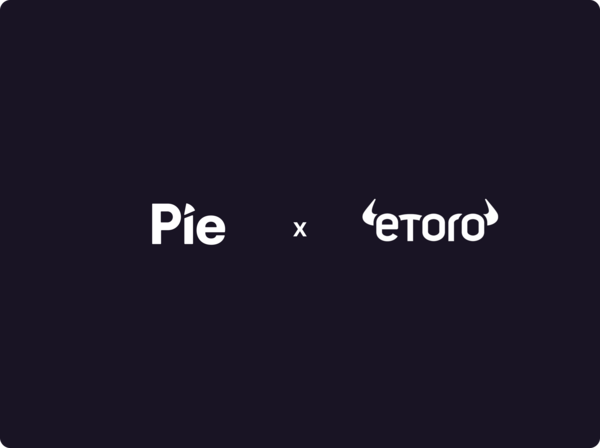Choosing the right accounting software for your construction business is crucial to managing finances, monitoring expenses, and ensuring project success. With numerous options available in the market, it can be overwhelming to decide which one best suits your needs. In this blog post, we dive deep into essential features, top construction accounting software options, and tips for selecting the perfect accounting software for builders. Stay with us as we unveil the secrets of efficient financial management in the construction industry, focusing on the best accounting software for builder professionals.
Short Summary
- Construction accounting software offers essential features such as job costing, project management, invoicing and billing to aid financial management of the construction industry.
- Choose from top options like Sage 100 Contractor, QuickBooks Online, FreshBooks, Xero and Pie for tailored solutions that meet your unique needs.
- Research cost-effectiveness & user feedback before making a decision to ensure successful implementation & maximum benefits for your builder business.


Essential Features of Construction Accounting Software
Construction accounting software, also known as accounting software for construction, is a type of construction software specifically designed to cater to the unique financial requirements of the construction industry. These software solutions, including financial construction ERP software, come equipped with essential features that streamline financial management, allowing you to focus on what you do best - building.
In this section, we will delve into the four essential features of construction accounting software: job costing, project management, invoicing and billing, and tax compliance.
Job Costing
Accurate job costing is critical for any construction business, as it helps you estimate project costs and track expenses throughout the project’s life. Construction management software with advanced job costing features allows builders to monitor costs in real-time, ensuring that projects remain within budget and profitable.
Job costing assists small business owners, especially builders, in accurately calculating project costs and monitoring expenses. By incorporating job costing features into your construction accounting software, you can stay on top of your project budgets and make informed decisions to maximise profitability.


Project Management
Project management is another essential aspect of construction accounting software. Efficient project management tools help streamline tasks, improve communication among team members, and ensure projects stay on track and within budget.
By incorporating project management tools into your construction accounting software, you can efficiently manage multiple projects, streamline processes, and enhance communication for improved efficiency.
Tax Compliance
Adhering to tax regulations is of paramount importance for construction businesses to avoid penalties and maintain a good reputation. Construction accounting software with tax compliance features can help builders ensure their adherence to regulations and avoid penalties.
By incorporating tax compliance features into your construction accounting software, you can ensure that your business remains compliant and avoids any regulatory issues. Tax compliance features not only help builders adhere to regulations, but also provide peace of mind, knowing that their financial records are accurate and compliant with the law.
Invoicing and Billing
Efficient invoicing and billing are crucial for maintaining accurate financial records and ensuring timely payments. Construction accounting software with advanced invoicing and billing features can automate these processes, saving time and reducing errors. For example, QuickBooks Online provides various payment options, such as credit and debit cards or bank transfers, all without any additional fees.
Investing in construction accounting software with robust invoicing and billing features ensures accurate financial records, prompt payments, and better cash flow management.
Top Construction Accounting Software for Builders
Now that we’ve explored the essential features of construction accounting software, let’s discuss the top options available for builders. In this section, we will present the top construction accounting software options, including:
•Pie
•Sage 100 Contractor
•QuickBooks Online
•FreshBooks
•Xero
These software solutions have been carefully evaluated based on a weighted scoring system factoring in ease of use, unique features, prevalence, and cost-effectiveness according to genuine user feedback.
Each of these software options offers a unique set of features and benefits to cater to the specific needs of construction businesses. By understanding the strengths and weaknesses of each option, you can make an informed decision and choose the best accounting software for your builder business. Here is a brief overview:

*with our premium plan at an extra £3 per month
Read on as we delve into the details of each software option and what makes them stand out from the competition.
Pie
Pie presents comprehensive and up-to-the-minute tax information through an easily accessible dashboard on a user-friendly mobile application. This app removes complexity by efficiently organising earnings and expenditures, consolidating all pertinent information in one central location.
The management of multiple revenue streams becomes notably simpler with Pie, and industry-specific tax assistants are at your disposal for personalised guidance. The user-friendly app interface propels Pie into the realm of an all-encompassing financial companion for construction businesses, delivering real-time tax computations and simplified returns, while also imparting profound expert insights.

The core features of Pie are:
- •Mobile App
- •Real Time Tax figure
- •Bookkeeping
- •Receipt reconciliation
- •Open banking integration
- •Multiple incomes / accounts
- •Direct HMRC submission
- •Invoicing (with the premium plan)
- •Tax support and advice (with the premium plan)
- •Return checks (+£59.99)
- Pie is FCA-approved and recommended by the HMRC for the government initiative ‘Making Tax Digital’.
- Pie provides a choice between two pricing options:
Essential: £6.99 per month
Premium: £9.99 per month

Sage 100 Contractor
Sage 100 Contractor is an on-premises application that offers valuable tools to construction firms to ensure the successful completion of projects in a profitable manner. This software provides comprehensive features for small to mid-sized builders, including:
- General ledger
- Inventory management
- Payroll management
- Project management
- Mobile implementation
One of the advantages of using Sage 100 Contractor is its ability to import data from local suppliers, including up-to-date material and cost lists. This accounting platform is tailored to the construction industry, making it an ideal choice for builders looking for an industry-specific solution.
With Sage 100 Contractor, you can effectively manage your construction projects, track expenses, and gain insights into the financial health of your projects.
In terms of pricing, the price of Sage 100 Contractor is not publicly available at time-of-writing.


QuickBooks Online
QuickBooks Online is an accounting software well suited to construction businesses. It is hosted in the cloud, so users can access it from anywhere. Offering seamless access and collaboration, QuickBooks Online provides cloud-based accounting tools that allow builders to manage their finances efficiently.
One of the key advantages of using QuickBooks Online is its job cost management feature, which provides a detailed breakdown of the total hourly cost rate, including hourly wage, employee tax, and overhead cost per employee. With QuickBooks Online, builders can access their financial data anytime, anywhere, and collaborate with their team for efficient project management.
Quickbooks Online has several different pricing plans available including:
- Self-Employed: £10 per month
- Simple Start: £14 per month
- Essentials: £24 per month
- Plus: £34 per month
- Advanced: £70 per month
FreshBooks
FreshBooks is an accounting software solution that provides invoicing and expense tracking capabilities for businesses of all sizes. Designed with growing businesses in mind, FreshBooks streamlines numerous tasks such as expense management, time tracking, and customer follow-ups, allowing builders to be more productive.
Furthermore, FreshBooks enables builders to generate polished estimates and invoices that reflect their brand, while also allowing clients to make payments and collections through their preferred methods, eliminating the need for builders to pursue payments. With FreshBooks, you can focus more on your core work and less on accounting tasks.
While FreshBooks does have the option to build a customisable plan, the three main packages they offer are:
- Lite: £12 per month
- Plus: £22 per month
- Premium: £35 per month


Xero
Xero is a cloud-based accounting software tailored for small and medium-sized businesses. It enables businesses to securely integrate with their bank, accountant, bookkeeper, and other business applications. Xero provides seamless integration with more than 1,000 apps, making it an economical solution for managing financials.
One of the reasons Xero is popular among builders is its capability for effortless integration with third-party applications. This seamless integration allows builders to expand the functionality of their accounting software and adapt it to their specific needs.
Xero offer four different pricing plans, which are:
- Starter: £15 per month
- Standard: £30 per month
- Premium: £42 per month
- Ultimate: £55 per month
Customisation and Scalability
Customisation and scalability are important factors to consider when choosing accounting software for your builder business. Customisation allows you to modify or tailor the software to meet your specific needs or preferences, while scalability is the ability of the software to manage increasing amounts of work or data without sacrificing performance or functionality.
For instance, customisable software solutions enable you to personalise the features, layout, and functionality to suit your needs. Scalable systems can adjust to changing demands and can be readily upgraded or extended as your business grows.
By considering customisation and scalability when selecting construction accounting software, you can ensure that your chosen solution can accommodate the evolving requirements of your business.

Security and Data Protection
Security and data protection should be a priority when selecting construction accounting software. Your financial data holds sensitive information, and protecting it from unauthorised access is crucial to maintaining the integrity of your business.
When evaluating accounting software options, consider the security measures implemented by the software and the data protection measures in place. This may include data encryption, secure server hosting, and robust access controls.
Furthermore, you should check if the software is approved by an official regulatory body such as the FCA (Financial Conduct Authority) which protects consumers and makes sure they get a fair deal.
By prioritising security and data protection when choosing your construction accounting software, you can safeguard your financial data and ensure the continued success of your business.
Tips for Choosing the Right Accounting Software for Your Builder Business
With so many construction accounting software options available, it can be challenging to decide which one is the best fit for your builder business. Here are some tips to help you make an informed decision.
- Consider the size of your company and your available budget. Different software solutions cater to different business sizes and budgets, so it’s essential to find one that fits your needs.
- Identify the features you desire in your accounting software. Create a list of desired features and prioritise them according to your company’s needs.
- Research and compare the top construction accounting software options, such as Sage 100 Contractor, QuickBooks Online, FreshBooks, Xero and Pie. Evaluate each option based on your prioritised list of features and consider factors such as ease of use, cost-effectiveness, and user feedback.
By following these tips, you can choose the right accounting software for your builder business that will enable you to manage your finances efficiently and effectively.


Training and Support Services
Implementing construction accounting software is only the first step in improving your financial management. To ensure successful implementation and use of the software, it’s essential to take advantage of training and support services provided by the software vendor. Training and support services may include:
- Online tutorials
- Webinars
- User guides
- Customer service and technical support
These resources can help you learn the ins and outs of the software, ensuring you maximise its benefits. By utilising training and support services, you can:
- Ensure proper use of your construction accounting software
- Reduce the learning curve
- Guarantee that the software is used accurately to benefit your business.
Transitioning from Manual to Digital Accounting
If your construction business is still relying on manual accounting processes, it’s time to consider transitioning to digital accounting. Digital accounting offers several advantages over manual methods, such as improved efficiency and accuracy in financial management.
By transitioning from manual to digital accounting, you can automate various financial tasks, such as invoicing, expense tracking, and tax compliance. This automation not only saves time, but also reduces the risk of errors in your financial records, ensuring more accurate financial management.
Embracing digital accounting can significantly improve the way you manage your construction business’s finances, allowing you to focus more on your core work and less on time-consuming manual processes.

Summary
In conclusion, choosing the right accounting software for your construction business is crucial to ensuring efficient financial management, improved project outcomes, and overall business success. By understanding the essential features of construction accounting software, evaluating top software options, and considering factors such as customisation, scalability, security, and data protection, you can make an informed decision that best suits your builder business’s needs.
Transitioning from manual to digital accounting can greatly improve your financial management processes, allowing you to focus more on your core work and less on time-consuming manual tasks. By utilising training and support services, you can maximise the benefits of your chosen software and ensure its successful implementation and use.
Take the first step towards better financial management and choose the right accounting software for your builder business today.
Frequently Asked Questions
How do you do construction accounting?
Construction accounting involves job costing to track all project costs, separating personal and business expenses, recording day-to-day financial transactions, selecting revenue recognition methods, tracking business expenses, reconciling statements, focusing on accurate job costing, using cash basis accounting, determining the best tax strategy, investing in software, and having the financial details to answer if a project is on budget and schedule.
It is important to understand the various aspects of construction accounting in order to ensure that projects are completed on time and within budget. Job costing is essential to track all project costs, and separating personal and business expenses is important to ensure accuracy. Additionally, recording day-to-day financial transactions, selecting revenue recognition methods, tracking business expenses, reconciling statements, and paying estimated taxes are all important steps in the process.
What are the essential features of construction accounting software?
Job costing, project management, invoicing and billing, and tax compliance are essential features for construction accounting software, providing efficient organisation of financial operations.
These features help contractors manage their finances more effectively, allowing them to focus on their core business operations. They also help contractors stay compliant with tax regulations.
Construction accounting software can also provide contractors with valuable insights into the construction industry.
What are some top construction accounting software options for builders?
Sage 100 Contractor, QuickBooks Online, FreshBooks, Xero and Pie are a few top construction accounting software options for builders. In this article, we have provided an overview of each software and their respective advantages.











